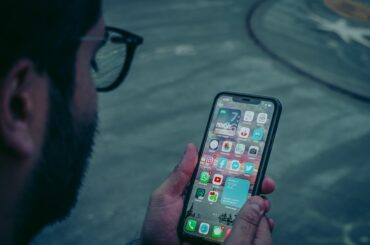Smartphones are like the soul of every human today. The smartphone is a way to circulate the emotions of humans, like the heart circulates the blood throughout our body. In other words, the Phone is the heart of people’s emotions. But what about smartphones when compared to computers?
A brief explanation of the terms
Processing Speed
Computers typically outperform smartphones in terms of processing speed. Thanks to their many cores and fast clock rates, computers can handle more complex tasks. In contrast, the processing power of smartphones is constrained by their size and battery life. However, the processing power gap between smartphones and computers is beginning to close as new smartphones come equipped with potent processors that can handle demanding tasks.
Storage capacity
Smartphones lack the storage capacity that computers do. Hard drives can easily be added to computers, allowing you to expand their storage capacity. On the other hand, smartphones’ internal storage is constrained and cannot be expanded. But as more people use cloud storage, the gap is getting smaller.
Battery
Compared to computer batteries, those in smartphones have a shorter lifespan. This is due to the smaller size of their batteries and the need to power multiple components, such as the screen, processor, and modem. Although some models now claim to last all day, smartphone battery life has significantly improved in recent years.
Screen resolutions
Smartphones have high-resolution screens that are at least as good as those on computers. Manufacturers do this to fit more pixels onto the smaller screens of smartphones. Computers, however, are superior in terms of screen size. Smartphone screens can be much smaller than computer screens, so computers are preferable for tasks requiring ample screen space.
One of the main benefits of smartphones over computers is their portability. Smartphones are portable due to their size and lightweight. Smartphones are:
- The best mobile devices for taking pictures.
- Checking emails while on the go.
- Making calls.
On the other hand, computers are less mobile and are typically designed to be used in a fixed location.
What percentage of a smartphone’s power is a computer’s?
Be specific about what you mean when you say “powerful.” “power” is frequently used to describe a device’s processing speed and capacity for demanding tasks. The device’s central processing unit (CPU), graphics processing unit (GPU), and random access memory are typically used to measure this (RAM). These parts are responsible for calculations and storing data, two tasks necessary for software and programs to function.
Undoubtedly, computers continue to lead the industry regarding raw processing power. High-end desktop computers can have CPUs with clock speeds over 5GHz and as many as 32 cores. Compared to smartphones, they frequently have RAM that is at least 16GB. This allows them to handle complex tasks like video editing, 3D rendering, and gaming.
The typical smartphone CPU, in contrast, has four to eight cores and operates at a clock speed of about 2GHz. They typically have 8GB of RAM or less, significantly less than a computer. Even though this might seem like a big drawback, it’s essential to remember that smartphones are made to be effective and mobile-optimized. They serve as a portable and practical supplement rather than a computer’s replacement when handling complex tasks.

Smartphones, however, can be just as effective as computers for some tasks. The use of smartphones for mobile photography and videography is one area where they have advanced significantly. Modern high-end smartphones frequently have multiple cameras, cutting-edge image processing software, and the ability to record 4K video. Professional photographers and videographers frequently use them because they can edit and share their work directly from their smartphones.
Mobile gaming is another area where smartphones have excelled. Although computers continue to dominate the high-end gaming market, smartphones are quickly catching up and can play many popular games with ease. This is partly attributable to the creation of mobile-specific games due to the growth of mobile gaming. These games frequently have lower system requirements than their PC equivalents, which enables them to operate flawlessly on even mid-range smartphones.
Portability
The portability of smartphones over computers is one of their main advantages. You can carry a smartphone wherever you go because they are portable and small enough to fit in your pocket. This implies that you can work and stay connected while on the go. Smartphones are necessary for many modern professionals, such as salespeople, journalists, and entrepreneurs, who need to stay connected and work from anywhere due to their portability.
Multitasking
The ability of smartphones to multitask has improved in recent years. Now that you can run multiple apps at once on many modern smartphones, switching between tasks is more straightforward, and productivity is increased. They are now a well-liked option for those who must maintain organization and manage several projects concurrently.
Accessibility
The accessibility of smartphones over computers is another benefit. More people can use smartphones because they are much more affordable than computers. This has been particularly crucial in developing nations where smartphones have become indispensable commerce, education, and communication tools. Smartphones are a crucial tool for social and economic development because they are frequently the primary method of internet access in many parts of the world.
Conclusion
Even though computers are typically more powerful than smartphones, most daily tasks can now be completed on smartphones thanks to their significant technological advancements. Desktop computers are different from the portability of smartphones and other mobile devices.
Read more : How do I connect a smartphone to a TV?




